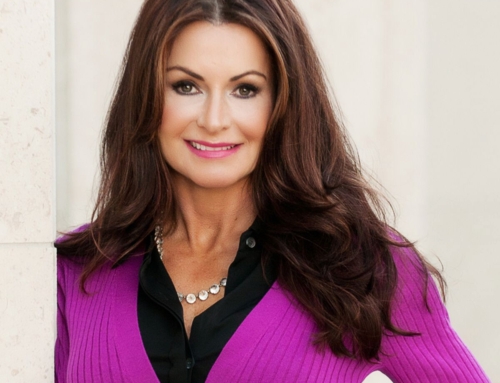Susan Boskey, founder of an holistic private practice, Lifestyle Wellness Rx, is a Certified Cannabis Educator and Practitioner using medicinal cannabis to support wellness of body, mind and soul. During these socially divisive and troubled times, stress, anxiety and depression are on the rise. Susan teaches clients how they can turn their mood disorders into a felt-sense of well-being that lasts.
My Back Story
I was a flower child in the 1960’s and 1970’s. Using cannabis opened my eyes at that time to the many injustices of the day including the Vietnam War and the Civil Rights Movement. Growing up in 1950’s suburbia there was much that was overlooked in polite society. However, for myself and many of my generation, the different perspective that cannabis engendered was a huge catalyst for questioning the status quo. I was able to see things differently about myself, my family and the world in general. I am appreciative also to those who over the decades inspired my deep personal-growth work and spiritual development.
This openness continues to grow as I gain valuable insights that become clearer and more actionable with age. I have dedicated my life to being part of the solutions needed in the world. My commitment has taken me down many paths over the years including co-establishing a solar energy company in1978, working diligently as a volunteer and staff member for the end of hunger, teaching Nonviolent Communication, owning and running a private health practice to restore gut health, and co-producing Buckminster Fuller’s lecture, Only Personal Integrity is Going to Count. After several years of study, I also published a workbook about a strategic – yet uncommon – approach to personal finance.
I asked myself, now what? So many people are suffering and feel disconnected in today’s extremely divisive society. My concerned reflections brought this thought: perhaps it’s time to help alleviate some of this suffering. Thus, it was completely natural for me to establish another holistic health practice. This time my mission is to help people reclaim well-being and happiness via the responsible medicinal use of cannabis despite the troubled world we live in. As more people experience genuine well-being, the whole of society may become less troubled.
Can you share the most interesting story that happened to you since you began leading your company? Can you tell us what lesson you learned from that?
Early on in my practice I worked with several people who seriously wanted to use cannabis medicinally to overcome their particular health issue. Most were 60 years old or older and most were women. I always begin with a client intake which allows me to get to know them better and also to check for any negative drug interactions between cannabis and any pharmaceuticals they may be taking.
I discovered that virtually all of my clients were on pharmaceutical medication and some were taking as many as ten different drugs. Since I am not a doctor or a nurse, all I could do was to see if some formulation of cannabis would not be contraindicated given a commitment to their ongoing drug regimen. In several instances I had to tell clients that I could not help them because of so many possible different drug interactions with cannabis.
Also, even when there were no known negative drug interactions, I did not know how cannabis (as plant medicine), would stand out physiologically as a benefit within a client’s existing drug cocktail.
What I learned is that I am more interested in helping people establish well-being before they have entrenched health issues leading them to intensive pharmaceutical use. Stress, anxiety and depression are often precursors to physical symptoms. I now prefer to address these chronic mental/emotional conditions as early warning signals and pivot points toward increased overall wellness of body, mind and soul.
Can you share a story about the funniest mistake you made when you were first starting? Can you tell us what lesson you learned from that?
I also offer an alternative type of Tupperware™ party where the host gathers friends and I teach them how to make their own cannabis/CBD oil tincture. At my first such party I added too much lecithin to the recipe. It was supposed to emulsify all the ingredients. When it was time for the reveal . . . the result was shocking! The entire batch was opaque and foamy! Previously I had made an oil tincture without the lecithin and it came out clear. I was so embarrassed and my host was sorely disappointed.
Attendees were promptly refunded for the class though I was told that the product still worked. What I learned? I learned that the recipe didn’t include enough detail regarding measurements. That was the last time I used any lecithin in my cannabis-oil tincture recipe as trial-and-error clearly indicated it was unnecessary.
Do you have a funny story about how someone you knew reacted when they first heard you were getting into the cannabis industry?
I had been feverishly studying with the Holistic Cannabis Academy in Colorado previous to my subsequent certification with them. One day I was with a friend and we went into a cannabis dispensary here in Washington (State) to learn about the products they were selling. I walk in the front door and see a woman, Nancy, working there, whom I had not seen or spoken with for at least 20 years since we both lived on Orcas Island off the coast of Washington State. “Wow . . . what a coincidence,” I thought. Now we we’re both in Bellingham, Washington, just due south of Canada.
I walked directly up to her and said, “Hi Nancy”. She was stunned to see me, as well. We began chatting and I shared with her about what I’d been up to, especially my new focus helping people with using cannabis medicinally. She got this look on her face I didn’t understand, and then she spilled the beans: she also was studying to do the same thing!
Now we are good friends, supporting each other in our individual work and collaborating along the way. Funny? Maybe not in the belly laugh sense but something I never expected or ever could have orchestrated.
None of us are able to achieve success without some help along the way. Is there a particular person who you are grateful towards who helped get you to where you are? Can you share a story?
When I lived in a small neighborhood in Ojai, California, in the 1990’s, my son was best friends with the son of a family down the street. and I was friendly with his mom. Fast forward, we’re now in Washington State without much contact with my son’s friend and his family. Then one day, out of the blue and after at least 10 years, the mom calls and says she wants to move to our area.
By this time my son is an adult and he and his wife meet her plane and tour her around the area. Long story short, she buys a home here and her son, also now an adult, moves up the next year.
The mom and I became better friends than we had been as parents 1000 miles away.
I had really wanted to take the Holistic Cannabis Academy course to become a Cannabis Practitioner, but needed financial assistance to make it happen. Turns out my friend was happy to make me a personal loan of the full amount. I graduated with certification and was able to repay her as per our agreement.
Without this friendship and our trust built over many years, I would not be where I am today. I have a heart full of gratitude for her and her belief in me.
Are you working on any new or exciting projects now? How do you think that will help people?
Yes I am. Thank you for asking. My latest offering is called: Well-being in a Troubled World, which will be an online course. The course work empowers participants with a step-by-step sequence to address stress, anxiety and depression via medicinal cannabis. Mood disorders are of epidemic proportions, affecting so many people these days.
Most people turn to antidepressants and benzodiazepines for relief. I’m glad relief is available. Yet pharmaceuticals merely manage symptoms and sometimes leave people with undesirable side-effects. Instead I want people to have an opportunity to discover their inner resources and that they naturally have the power to heal and be well long into the future.
This self-paced course is for people who are ready to transition from their particular mental or emotional state to a felt-sense of whole person well-being. It’s all about self-care. Participants learn how to carefully use medicinal doses so they can have positive experience.
The intent is that those choosing this approach will benefit immediately by gaining a reference point of how being well actually feels (more than a thought). From there, within a state of feeling well, we have less resistance and more openness. With relaxed receptivity, a new perspective of our life becomes available. We may begin to recognize some of the causes of our symptoms (lifestyle, relationship, food choices, work or environmental toxins, etc.)
Once a cause is recognized as underlying mental and emotional symptoms, we can embark on desired transformations. The course offers strategies for doing so plus recommendations of additional holistic modalities to enhance the personal refreshment of inner and outer reconnection.
The launch for this online course, Well-being in a Troubled World, is scheduled for January, 2020.
Ok. Thank you for all that. Let’s now jump to main core of our interview. Despite great progress that has been made we still have a lot more work to do to achieve gender parity in this industry. According to this report in Entrepreneur, less than 25 percent of cannabis businesses are run by women. In your opinion or experience, what 3 things can be done by a) individuals b) companies and/or c) society to support greater gender parity moving forward?
Individually, I believe that if more women take the time to educate themselves about the amazing versatility and evidence-based science citing the benefits of the cannabis sativa plant, they would be inspired to look further into the industry end of things.
Companies would be well-served by highlighting stories of the many women who are leaders in the cannabis industry at the time they are seeking new business partners and/or employees.
On the societal level, I see the support for greater gender parity to be inextricably linked to the degree that the ‘evil weed’ stigma is still alive and well despite legality in over 30 states and DC for medicinal use. Commensurate with the stigma lifting, I believe more women will clearly see the opportunities available to them.
You are a “Cannabis Insider”. If you had to advise someone about 5 non intuitive things one should know to succeed in the cannabis industry, what would you say? Can you please give a story or an example for each.
Sure, I’d be glad to.
-Medicinal use is on the back burner for most cannabis dispensaries, at least in Bellingham, Washington. The medicinal cooperatives in Washington State that were growing specific cannabis strains for patients, by request, had to go away once Adult-Use/Recreational Use became legal. As a result, the majority of sales are clearly for the latter. I know this firsthand from my stint working in a local dispensary. Maybe only 10-15% tops of customers wanted to purchase products for medicinal use. Most wanted products with a high percentage of THC.
-Cannabis throughout the U.S. is regulated by the Liquor and Cannabis Board. Most people, customers or otherwise, have no idea that the same regulatory board that has been regulating alcohol for years now also regulates cannabis in every state where it is legal.
-Cannabidiol (CBD) with .3% or less THC cannot be sold in cannabis dispensaries. From working in a Washington State dispensary I learned that all products sold at the store MUST contain an amount of THC over .3%. The cannabis products certainly can have CBD in them but the THC has to be of a higher percent than .3%. This has made it possible for CBD to be widely marketed and sold throughout the U.S. (but only available outside of a legal cannabis dispensary).
-Cannabidol (CBD) is a non-psychoactive compound of the cannabis plant. As such it is still illegal, even though its derivatives are legal to sell and ship throughout the U.S. as tinctures, etc. This is splitting hairs, perhaps, but true, since CBD is one of over 100 known chemical compounds of the cannabis plant (which many customers don’t realize). The cannabis plant is still a Schedule I drug according to the US Feds which allows any state to legally deny CBD to be sold there. For example, as of 2019 Idaho, North Dakota and Nebraska do not allow cannabis in any form, including CBD.
-Historically, the whole of the cannabis plant was used for its tonic effect for overall wellness, now known as the entourage effect. As a practitioner, I have spoken with many people who just want to take pure CBD without understanding the extra benefit of whole plant medicine. Hemp-derived CBD with .3% THC or less can include the many other cannabis compounds for an entourage, tonic effect. Look for the words, full-spectrum, on the label.
Can you share 3 things that most excite you about the cannabis industry?
The three things that excite me the most about the cannabis industry at this time are:
- THCV Tetrahydrocannabivarin is a psychoactive cannabinoid in 2019 only available in California. Known for its potential to reduce or prevent panic attacks and more.
- Mexico as a country is on the verge of becoming 100% legal.
- The studies, research and body of knowledge is growing on cannabis as an agent to heal many different cancers, not just to reduce the symptoms of chemo and radiation.
Can you share 3 things that most concern you about the industry? If you had the ability to implement 3 ways to reform or improve the industry, what would you suggest?
Glad you asked, here’s what concerns me:
- 1. Medicinal sales in dispensaries wane under the Liquor and Cannabis Board’s control and regulations. I would like to see this board actually make an effort to promote medicinal use to encourage people and open their minds to health options.
- Cannabis use disorder has been on the rise due to cannabis plants being bred to contain a much higher percentage of THC than in the 1960’s -70’s. Now many products are over 20% THC. I suggest dispensaries take it upon themselves to educate their customer base about this, including the possibility of adverse reactions.
- Many people new to cannabis are sold edibles and have a really bad first experience. I suggest that budtenders are trained with knowledge of edibles’ strong potential to affect the cannabis newbie negatively and make more of an effort to educate and warn customers.
What are your thoughts about federal legalization of cannabis? If you could speak to your Senator, what would be your most persuasive argument regarding why they should or should not pursue federal legalization?
I have a friend who worked for the Veterans Affairs Department of the federal government. She confirmed what I had already learned from a neighbor who is a veteran: that cannabis is not allowed for them in the treatment of PTSD. My neighbor suffers from PTSD and he said cannabis was the only thing that really helped him. Fortunately, a new VA policy means veterans will no longer lose their benefits if it’s found out they are using it. With the outrageous number of vets committing suicide, this is crazy. Recently, Veterans Affairs cited 60,000 veterans died by suicide between 2008 and 2017. Give me a break! That’s more than the total number who were killed in the Vietnam war.
Today, cigarettes are legal, but they are heavily regulated, highly taxed, and they are somewhat socially marginalized. Would you like cannabis to have a similar status to cigarettes or different? Can you explain?
I think cannabis may already have a similar regulatory status to cigarettes in Washington State. Anyone who is, or was, in the cannabis industry here knows that this industry is regulated beyond belief. Not to mention the 37% excise tax rolled into the price to the customer and other unusual taxes added to the dispensary owner. Cannabis is inherently not an addictive substance like nicotine; abuse of cannabis is dose-dependent. The issue, as I see it, is not stiff regulation but education. How much someone chooses to use cannabis is the issue, which has nothing to do with the plant itself.
Can you please give us your favorite “Life Lesson Quote”? Can you share how that was relevant to you in your life?
“You never change things by fighting the existing reality. To change something, build a new model that makes the existing model obsolete.” ~ R. Buckminster Fuller
Bucky was an in-person mentor for me, particularly back in the 1970’s and 80’s. He would often quote Helen Keller saying, “Life is either a daring adventure or nothing at all.” My direction in life has absolutely been shaped by Bucky in the sense that I have created new models in my work over the years and continue to do so. For sure, my life is a daring adventure and I wouldn’t have it any other way!
You are a person of great influence. If you could inspire a movement would bring the most amount of good to the greatest amount of people, what would that be? You never know what your idea can trigger. 🙂
I humbly submit at this last stage of my life that my online course, Well-being in a Troubled World, is my best shot to bringing the most good to the most people. In an externally-oriented society, when we aim for a life of well-being, improving the quality of our inner life is core. By owning and improving our inner life, tapping into the pool of infinite intelligence available to everyone, our relationship with others also improves. We naturally focus more on our sameness as human beings, wanting to be happy and avoid suffering, rather than on our differences that can divide us.
Thank you so much for the time you spent with this. We wish you only continued success!

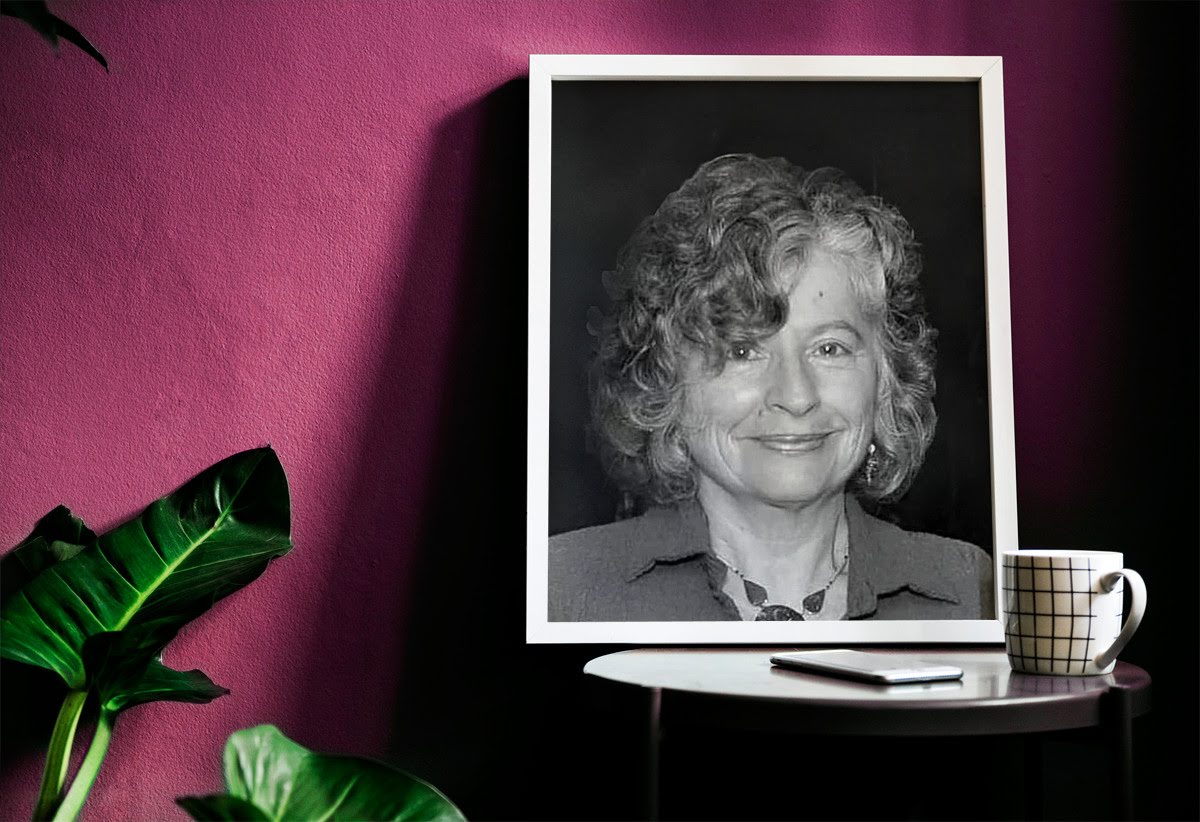
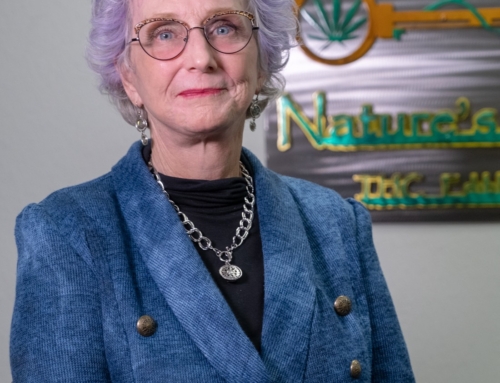
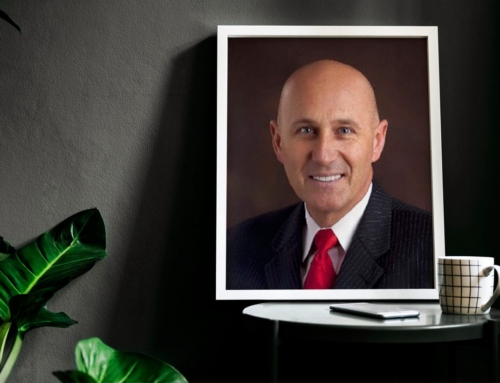
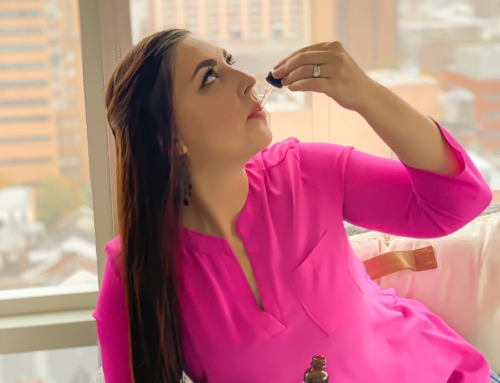
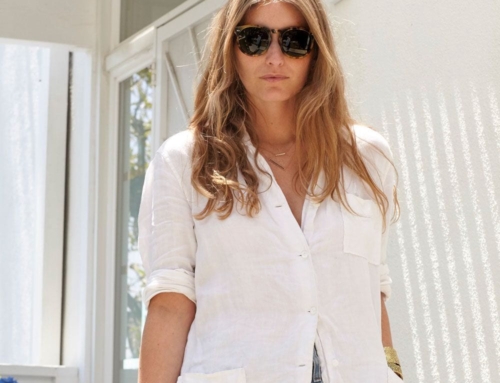
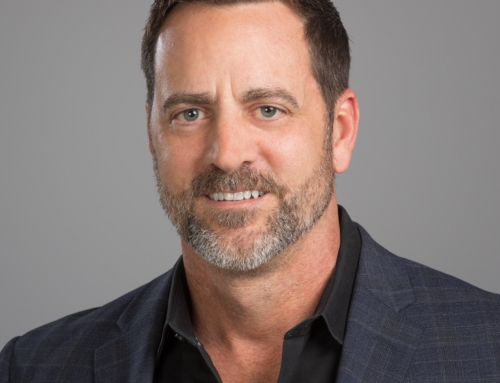
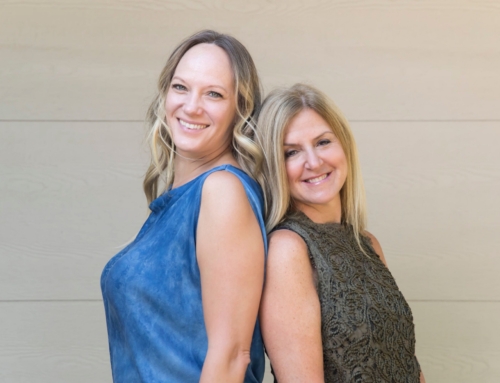
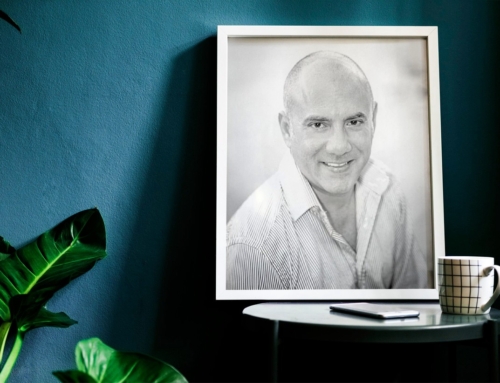
![“The potential to help people [in this industry] is enormous, but there’s still so much to learn.” – Ramon Alarcon, Witi](https://cf.lakesideremedy.com/wp-content/uploads/2020/12/1thj5ekUyxQ69iLz1JJyODg-scaled-e1607882756286-500x383.jpeg)
